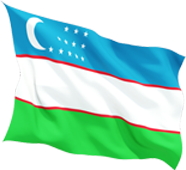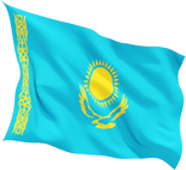Uzbekistan has made inclusive education a key priority in its state policy, and significant progress is underway in this area. A major step forward came with Presidential Decree № 4860, “On measures to further improve the system of education and upbringing for children with special educational needs”. This decree laid the foundation for the country’s efforts to enhance inclusive education.
As part of this initiative, Uzbekistan developed a concept for advancing inclusive education in the public school system from 2020 to 2025, and created a “road map” for its implementation in 2020–2021. The plan also set specific targets for improving education for children with special needs by 2025.
The “New Uzbekistan Development Strategy for 2022–2026” further highlights the government’s commitment to inclusive education. The strategy outlines key goals, such as improving the systems for educating and employing people with disabilities to ensure their participation in the socio-economic life of society (Goal 66) and ensuring open and high-quality education for youth at all levels, while fostering inclusive education in the regions (Goal 70).
Much effort has gone into supporting young people with disabilities, encouraging their social engagement, boosting their interest in employment, and involving them in science, technology, art, and sports. Following Presidential Decree No. 57 from December 21, 2021, the Agency for Youth Affairs was tasked with helping young people with disabilities engage in self-employment, entrepreneurship, and vocational training. They are also being supported in learning foreign languages and covering educational expenses at non-governmental educational institutions, as well as receiving assistance in purchasing necessary equipment and work tools.
To further assist these youth, the Cabinet of Ministers issued Resolution No. 341 on June 21, 2022, which allocated annual subsidies of up to 50 times the basic calculation amount for up to 500 young people with disabilities.
As of 2023, 121,009 young people aged 14–30 were living with disabilities in Uzbekistan. Among them, 68,723 were male, and 52,268 were female. These youth include 11,569 individuals with Category I disabilities, 69,724 with Category II disabilities, 3,655 with Category III disabilities, and 36,043 children with disabilities.
The government has been providing subsidies to teach these young people modern professions, general education subjects, and foreign languages. Additionally, subsidies help cover their living and transportation expenses while they study. These services are accessible through the Single Interactive State Services Electronic Portal.
In 2023, 1,557 applications were submitted through the portal. After review, 437 were approved (28%), and 5.1 billion soums in subsidies were distributed to young people with disabilities.
As a result of this support, 356 young people with disabilities have launched their own entrepreneurial ventures, which ensured their employment.
This year, 1,335 additional applications were submitted through the electronic portal. Among these, 216 applicants sought support to cover educational expenses at non-governmental institutions, 1,098 applied for assistance in purchasing equipment or work tools, and 21 requested support to cover living and transportation expenses. Of these, 478 applications were approved, 105 were canceled by the applicants, and 710 were rejected due to deficiencies. Currently, 41 applications are under review.
As a result, 123 young people with disabilities have received 1.5 billion soums in subsidies, with an additional 355 young people awaiting their approved subsidies.
In 2021, Uzbekistan ratified the UN Convention on the Rights of Persons with Disabilities. To put the provisions of the Convention into practice, the Chambers of the OliyMajlis approved a National Action Plan for 2023–2025.
The Presidential Decree No. 4860 brought about positive changes. During the first half of the 2023–2024 academic year, 530 general secondary schools implemented inclusive education, enrolling 1,195 children with special educational needs, 449 (37.6%) of whom were girls.
Out of 1,195 children with special educational needs, 515 are enrolled in 1st grade, 401 in 2nd grade, 245 in 3rd grade, 17 in 4th grade, 4 each in 5th and 7th grades, 3 in 8th grade, 5 in 9th grade, and 1 in 10th grade.
According to the regional analysis, inclusive education has been implemented in 44 general secondary schools in the Republic of Karakalpakstan, 46 in Andijan region, 23 in Bukhara region, 43 in Jizzakh region, 37 in Kashkadarya region, 17 in Navoi region, 61 in Namangan region, 20 in Samarkand region, 16 in Syrdarya region, 41 in Surkhandarya region, 65 in Tashkent region, 47 in Fergana region, 18 in Khorezm region, and 52 in Tashkent city.
Primary basic correctional classes are available in 4 schools across the country, accommodating 62 children with special educational needs. Specifically, these classes are available in School No. 27 in Nukus city, Republic of Karakalpakstan; School No. 17 in Andijan city, Andijan region; School No. 4 in Kogon city, Bukhara region; and School No. 12 in Urgench city, Khorezm region.
Currently, 115 special education teachers are working in general secondary schools where inclusive education has been implemented.
Since the 2021-2022 academic year, 12 methodological and 10 advisory manuals have been developed for participants in inclusive education by specialists from the Republican Diagnostic Center for Career Guidance and Psychological-Pedagogical Services.
Additionally, to raise awareness among teachers, parents, and the public about the rights of children with special educational needs and the essence of inclusive education, 5 videos titled “Adapting children with special educational needs to the educational environment,” 3 videos on “Recommendations for parents in inclusive education,” as well as videos on topics such as “What is violence? What does violence against children entail?” “Problems that may arise in preventing various forms of violence against children with special educational needs at school,” “Working individually with a student with special educational needs who has experienced violence,” “Partnership with parents in the context of inclusive education,” and “The advantages of inclusive education over special education” have been prepared and posted on the official pages of the center on social networks.
Offline and online training seminars are organized every academic year for educators in general secondary schools where inclusive education has been introduced. For example, during the 2023-2024 academic year, a total of 12 online seminars were held on the topic “Preventing discrimination against girls with disabilities by educators, students, and their parents due to their disabilities,” attracting 3,680 participants.
In May, seminar-trainings were held under the slogan “Inclusive education: equal opportunities for all children” in preschools, general secondary schools, and specialized state schools for children with special educational needs in Samarkand, Jizzakh, Syrdarya, Tashkent regions, and the city of Tashkent, aiming to expand the network of inclusive education and improve the knowledge of educators and parents about inclusive education.
Since the 2021-2022 academic year, annual 72-hour specialized training courses have been organized for school leaders, psychologists, and educators in general secondary schools with inclusive education, in an online format each August. In addition to local specialists, experts from Russia, Belarus, Kazakhstan, and Japan have been involved in these courses.
It is also worth mentioning that in addition to the progress made, some challenges remain. For example, training courses have not yet been organized for psychologist-methodologists from the departments of preschool and school education in districts (cities), responsible for the social-psychological support of children and inclusive education.
Therefore, it would be advisable to establish regular professional development courses for psychologist-methodologists from the departments of preschool and school education in districts (cities) from 2024, with a certification system that teaches participants new methodologies at the National Training Center.
Some shortcomings have been observed in recruiting tutors for general secondary schools with inclusive education. Considering this, it is necessary to create broader opportunities for senior students of pedagogical universities to undergo practical training in these schools.
To promote an inclusive culture in society and increase public awareness, it is essential to provide relevant information on the topic through television, as well as to organize meetings, seminars, and trainings in local communities.
The primary goal of developing the inclusive education system should be to ensure equal opportunities for all children, providing the necessary conditions for them to succeed in education, regardless of their individual characteristics, achievements, language, culture, or the social and economic status of their parents. Clear priorities for achieving this must be set.
Feruz Ablayarov,
Deputy Director of the Youth Affairs Agency of the Republic of Uzbekistan












